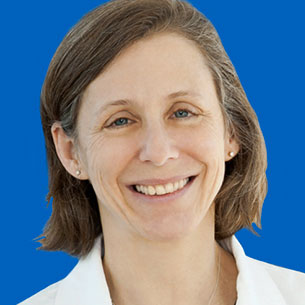One of my great professional passions—one shared, I’m sure, by many readers of this magazine—is clinical research. Innovative, well-conducted clinical trials are the most powerful tool we have in the fight against cancer.
I am thrilled by the discoveries that we make through clinical research, the ones that enable us to give patients more years of life and more life in their years after a cancer diagnosis. I am humbled by the research efforts that do not yield the results we hoped to see, which are not failures in any sense of the word, but add to the ever-growing body of knowledge about cancer treatment and care. I am energized by the opportunity to work collaboratively with a diverse research team, drawing upon the skill and expertise of many talented medical professionals and patient advocates, each person with their unique and essential role to play. And I am awed by the generosity and altruism of the patients who participate in clinical trials. In so many cases, enrolling in a clinical trial demands their time, resources, and energy in a period of life where those may be in short supply, and yet they enroll anyway, with willingness and enthusiasm and, above all, hope.
If you believe (as I do) that research is intended for the benefit of every patient, then you are likely concerned (as I am) about the overall low percentage of adult enrollment in cancer clinical trials, and the obvious racial and ethnic disparities in clinical trial participation. ASCO and Friends of Cancer Research have made equity in cancer research, specifically related to broader and more inclusive eligibility criteria for clinical trial participation, the cornerstone of a fruitful and ongoing collaboration. In April, the two organizations cohosted a virtual event on expanded eligibility, which yielded a number of questions from engaged participants. Dr. Julia A. Beaver, Dr. Michael A. Thompson, and Dr. Lori J. Pierce address some of these thoughtful queries. ASCO and Friends of Cancer Research also partnered on a joint statement advocating for the immediate inclusion of people with cancer or with a history of cancer in all COVID-19 vaccine trials, unless there is a clear safety contraindication.
Elsewhere you will find an update on ASCO’s Targeted Agent and Profiling Utilization Registry (TAPUR) Study and its global impact, an overview of the clinical trials landscape in Latin America, a conversation with Dr. Jennifer A. Ligibel about supporting women in cancer research careers, and a profile of Conquer Cancer-supported researcher Dr. Yael P. Mossé.
I truly believe there has never been a more exciting time to be involved in cancer research, with so much knowledge to support our explorations and so many pressing questions still to answer. Whether you are an investigator, an advocate, a donor, or a participant, thank you for everything you do to propel our research enterprise forward.


Recent posts